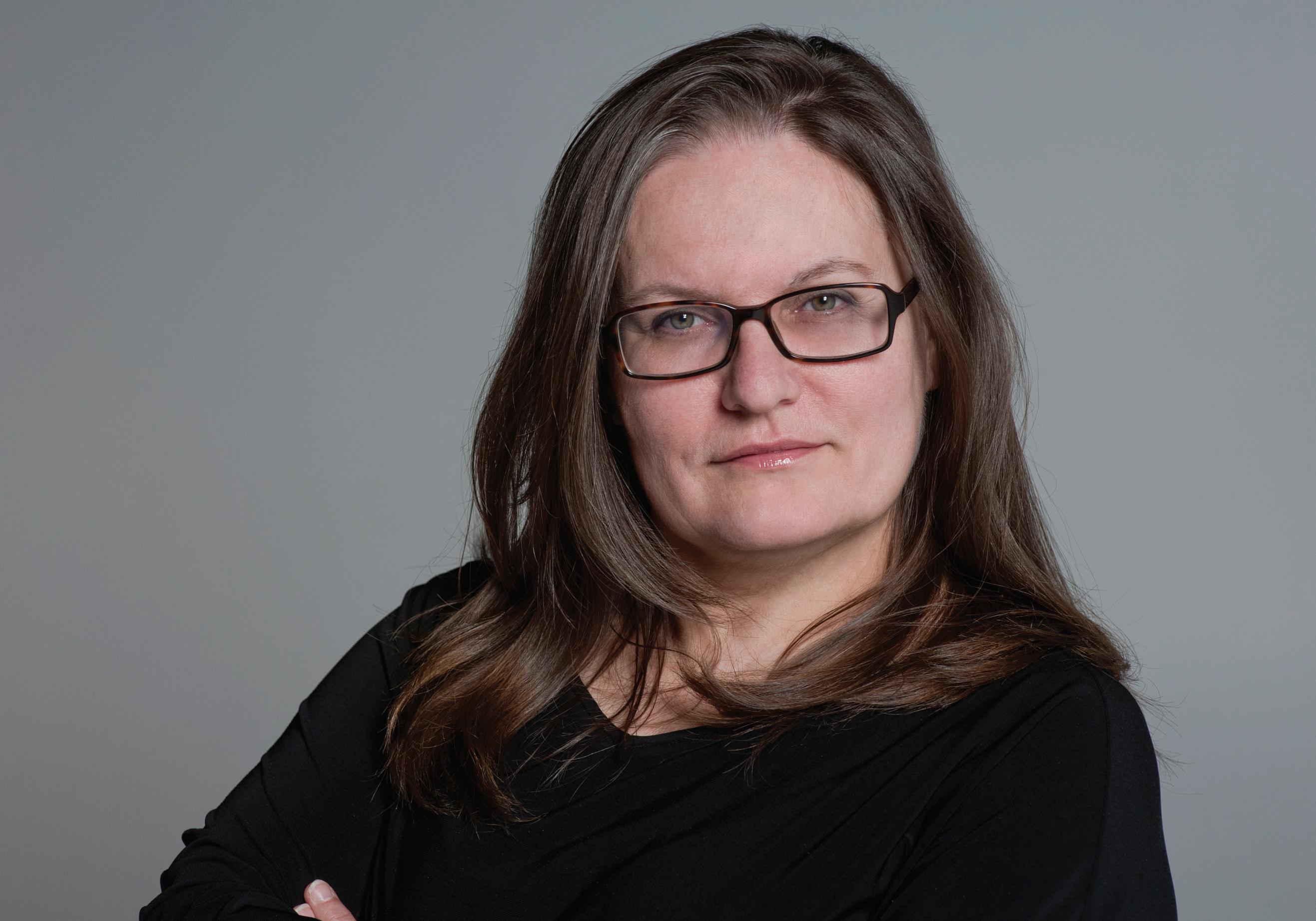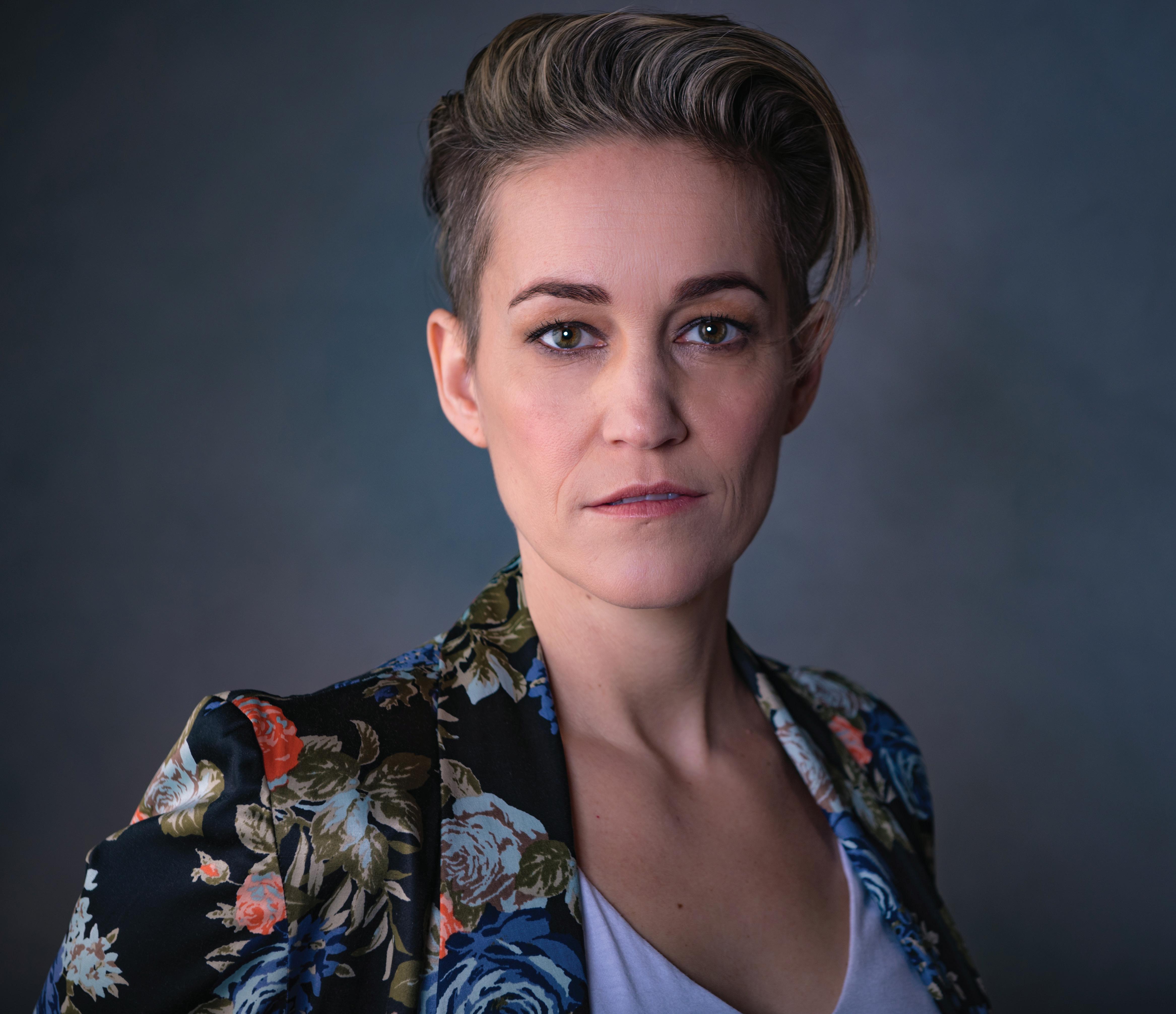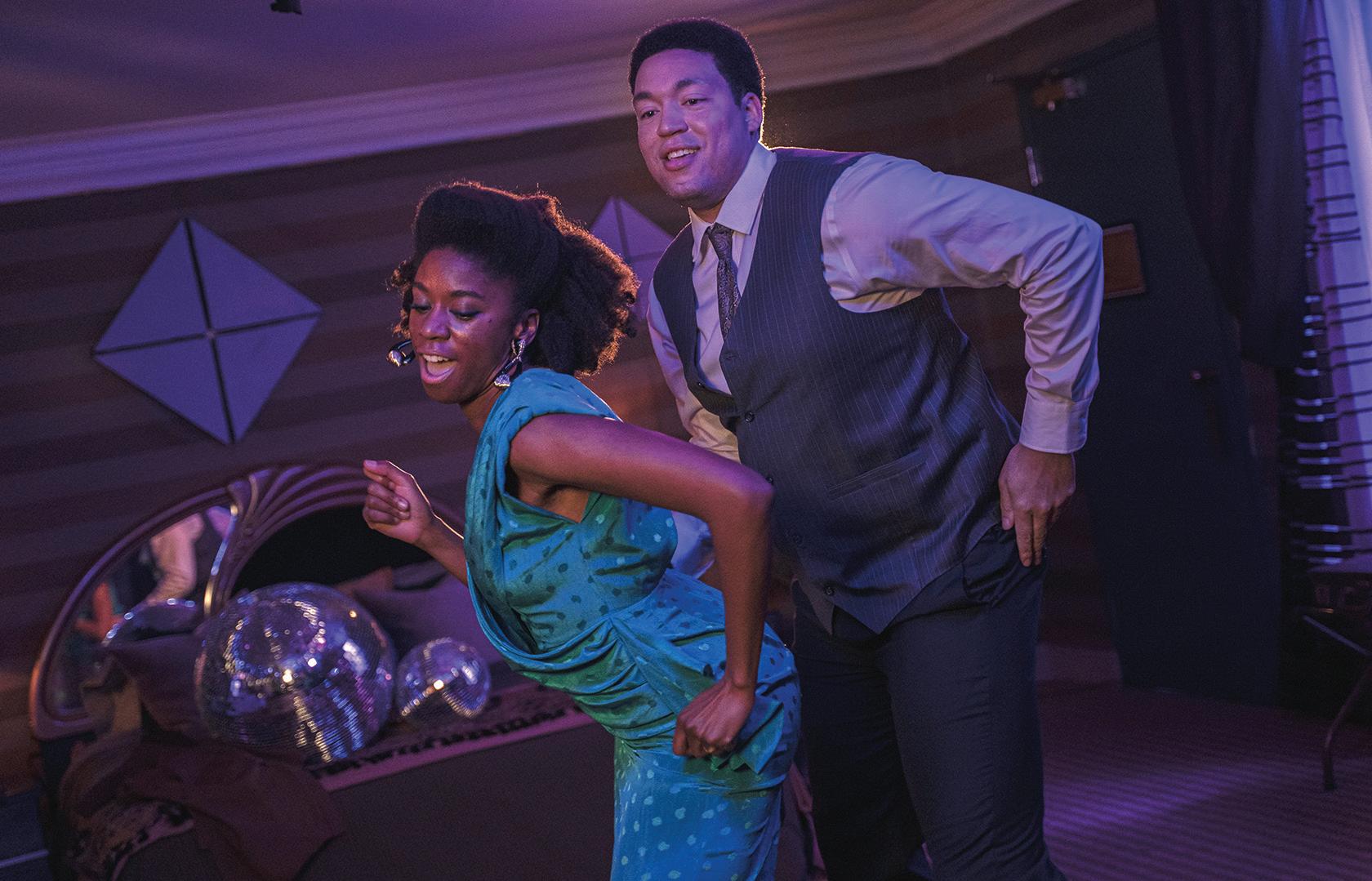
10 minute read
DANCE
ARTS Choreographer reflects feelings of being Stuck
by Charlie Smith
Advertisement
While many in the environmental community are focused on Earth Day on Thursday (April 22), there’s also a big day coming up on the calendar for contemporary and classical dancers. In 1982, UNESCO declared next Thursday (April 29) as International Dance Day. It coincides with the birthday of Jean-Georges Noverre, the founder of modern ballet.
Here in Vancouver, the Dance Centre is planning several virtual events, including six “microcommissioned” short dance films from diverse local artists.
One of those participating is Clala Dance Project choreographer Tomoyo Yamada, who graduated last December with a master’s degree in interdisciplinary arts from Simon Fraser University. Entitled Stuck in 2020, it shows dancers barely able to move in a tiny space.
“We asked the dancers to stay there and kind of use movement to reflect on how we’re feeling,” Yamada told the Straight by phone. “There were so many emotions that came up, like frustration and sadness. People are anxious. People are worried.”
Her goal was to translate emotions that arose from the pandemic into movement. When asked what she would like people to take away from the film, Yamada said that she would be “very happy” if people felt they completely agreed with the sentiment. She emphasized that it’s not totally dreary.
“We tried to make the film a little funny for the people watching because everybody is obviously still stuck in their houses,”
The Dance Centre offers six microcommissions, including Stuck in 2020, for International Dance Day; the video will be streamed on April 29. Photo by Sam Mason and Charlotte Telfer-Wan. Yamada said. “I just want everybody to feel like we’re all in this together and you’re not alone stuck in your house.”
The other dancers who received microcommissions included Arely Santana, whose The Show Must Go On features salsa, bachata, and other Latin dances. Bharatanatyam dance artist Ashvini Sundaram’s project is called Swan Alarippu. And Vanessa Goodman is collaborating with musician Scott Morgan on Cobalt. The two other microcommissions went to Meagan O’Shea/Stand Up Dance for Vicarious Time and Xin Hui Ong for Kindred.
The Japanese-born Yamada has only been living in Vancouver for three years but she’s no newcomer to the world of dance. In 2014, she choreographed the autobiographical Femme Facade, which was presented at the All Japan Dance Festival in Kobe. It was inspired by the difficulties she experienced after she moved from Cincinnati, Ohio, to Nagoya, Japan, when her family decided to return to their country of birth. “When I moved back to Japan, I was about 12—old enough to know that Japan is a little different from the States,” Yamada said. “And there were just a lot of unspoken rules that needed to be followed in Japan

Tomoyo Yamada has choreographed a new work that was inspired by the pandemic. that I did not know of. I always felt like I was the odd one out. I didn’t feel like I fit into Japanese society.”
Her parents always suspected that she would return to North America, so they weren’t surprised when she announced that she wanted to attend graduate school at SFU.
“I was really surprised by how diverse Vancouver was when I came here,” Yamada noted. “I’m envisioning my career to kind of go on this path of looking at different cultures, different values, and different ideas, and trying to be creative within those new inspirations.” g
The Dance Centre soldiers on in face of COVID-19
by Charlie Smith
The Dance Centre in downtown Vancouver has been a whirlwind of activity in this pandemic. For proof, just look at some of the shows that have been livestreamed since the provincial health officer, Dr. Bonnie Henry, cancelled live events.
In December, dancer Mary-Louise Albert came out of retirement after 20 years to dance her own solo in a series of performances that she commissioned. Solo Dances/ Past Into Present also featured her daughter, dancer Rebecca Margolick, as well as dancers Livona Ellis and Vanessa Goodman.
More recently, the Dance Centre streamed Proximity, a collection of short works featuring Joshua Beamish either dancing or choreographing. Then there are flamenco performances by Kasandra “La China”, which continue until April 28.
Next Thursday (April 29), the Dance Centre will stream events from 11 a.m. into the early evening to commemorate

The Dance Centre’s Mirna Zagar says revenues are down this year. Photo by Steven Lemay. International Dance Day.
“I think it’s important for the readers [of the Georgia Straight] to know that while there are no live performances, artists are quite busy regardless—and they’re busy in different ways,” the Dance Centre’s executive director, Mirna Zagar, told the Straight by phone. “Some are reflecting, others are researching, others are
– The Dance Centre’s Mirna Zagar
actually creating work, and many are also performing, although to the camera.”
She acknowledged that dance on video can never match the magic that comes with watching a live performance. But the dance community is keeping very busy, notwithstanding the pandemic. The Dance Centre has seven studios, including a theatre.
“Our mission and mandate is to support dance artists in their careers and their aspirations,” Zagar said. “And also to bring dance to communities. I admit we are struggling still to find the best ways of doing it under current circumstances.”
That said, she’s very proud of what the Dance Centre has managed to achieve in recent months. But she also pointed out that COVID-19 has had a detrimental impact on the Dance Centre’s finances. She’s hoping that the public is in a mood to step up and support arts groups like hers.
“The government has been very generous, but the funding only goes so far and is nowhere near what’s needed to sustain this,” Zagar revealed.
In the meantime, the Dance Centre continues with its outreach, offering digital content to seniors, high schools, and, recently (and for the first time), a kindergarten class. She also appreciates the positive feedback when the Dance Centre is able to fulfill various requests that come in.
“That means what we do is meaningful and it has a future,” Zagar said. “And that helps us get through the hard times.” g
MOVIES Crazy8s film tackles after-death memory uploads
Luvia Petersen’s iDorothy examines society’s expectations through the experience of a lonely widower
by Charlie Smith
The world of 3-D printing is opening up all sorts of possibilities. But it’s only in the movies—at this point—where a widower can order up a living, breathing, talking facsimile of his deceased wife, complete with happy memories.
That’s the premise of Vancouver director and actor Luvia Petersen’s intriguing new film, iDorothy, which takes place in the not too distant future. Written by Huelah Lander, it will be screened at Crazy8s, a Vancouver festival of six short films made within eight days.
“If you upload a human being’s memories, are they them? Do you get all of them again?” Petersen asked in a phone interview with the Straight. “So that was something that we were interested in.”
The two lead actors, multiple award winner Carmen Moore and Hiro Kanagawa, play Dorothy and Sal, respectively. Petersen said that working with these polished veterans made her feel like a 16-year-old kid who had just received her licence and was driving a Ferrari. “Casting is everything,” she declared.
The film opens innocently enough but takes a disturbing turn in a dark and confined house full of secrets.
“When I read Huelah’s script, I saw a generational story there,” Petersen said. “I saw my parents, I saw my grandparents, and I saw a story about how we get stuck in the ideas of who we’re supposed to be based on society’s expectations. And that’s certainly what happens to our two lead characters in iDorothy. Both Sal and Dorothy are trapped in these ideas of who they’re supposed to be.”
Crazy8s receives ample support from B.C.’s film unions, Telefilm Canada, Creative B.C., and others linked to the industry. The co-executive director of the Crazy8s Film Society, Erin Mussolum, told the Straight that the festival was founded in 1999 and is really about the industry coming together to empower emerging filmmakers.
First, applicants must present video pitches, which result in 40 filmmakers moving to the next step. The 12 finalists receive story mentorships before a jury selects the six who get to make their films. According to Mussolum, good storytelling is at the heart of the festival.
“Those six are given a lot of different mentorship training, production support, and then, of course, industry support and casting support,” she said.
Petersen quipped that there was no sleep for the Download Joy Productions creative team when it only had eight days to complete the film. The company also produced Happiness, a short film that will premiere on Crave.
Petersen, a former cast member of Continuum, Riverdale, and Ghost Wars, added that she kept the cast and crew as small as possible because of the pandemic. Rather than hire a third actor, she cast herself in the film.
“I was able to jump in in front of the camera,” Petersen said. “Carmen and I finally got to work together as actors as well, so that was lots of fun.” g

Director Luvia Petersen wondered if a person can really be recreated using only memories. Photo by Crazy8s Film Society.
The Crazy8s Online Gala Screening Showcase takes place on May 1.
Cross-dressing period piece based on true story
by Charlie Smith
Rachel Rose says her new short film, “Tryst”, tells a story that she’s wanted to share for a very long time. In a phone interview with the Straight, the first-time director acknowledged that for years, she didn’t think she had the resources to do the story justice.
The first challenge was that it was a period piece, set in 1979. Secondly, it revolves around a husband who feels compelled to cross-dress outside of the bedroom, which creates a great deal of angst for his wife.
“It’s a story that’s super close to my heart,” Rose told the Straight by phone. “It’s based on a true story about a couple that I know.”
She pointed out that it was virtually impossible to be a cross-dresser in public in the late 1970s and early 1980s. According to her, the only spaces where this could occur in most communities “were really hidden, on the outskirts of town”.
Moreover, it wasn’t safe—there wasn’t even popular vocabulary to discuss nonbinary gender expression or gender identity. “Back then, it was still very much a disease…a mental-health issue,” she said.
Rose works full-time as a first assistant director in Vancouver. But it wasn’t until she was greenlit by the jury at the Crazy8s film festival that she was able to make “Tryst”. Crazy8s filmmakers have only eight days to complete their productions.
She credited her cowriter, Shayn Walker, who also stars as the husband, Marcus, opposite Anesha Bailey, who plays Dina in this deeply emotional drama.
“He pitched himself as Marcus,” Rose said. “And as soon as he said that, I said, ‘Okay, I can do this.’”
Rose self-identifies as a “cis gay woman”, and her partner, Belén Garcia, worked as the director of photography. And it’s extremely important for Rose to tell authentic queer narratives.
She also wanted to ensure that BIPOC people were not only in front of the camera but were also working on set.
“The tagline for the film is straight people doing queer things,” Rose noted. “It’s really interesting to try to blur the line between straight narratives and queer narratives…I think that’s where the conversation needs to go. So I think “Tryst” does that.” g

“Tryst”, one of the 2021 Crazy8s competition’s final short films, looks at marital discord arising from a husband’s desire to publicly experiment with cross-dressing Photo by Sydney Wong.
– “Tryst” director Rachel Rose



